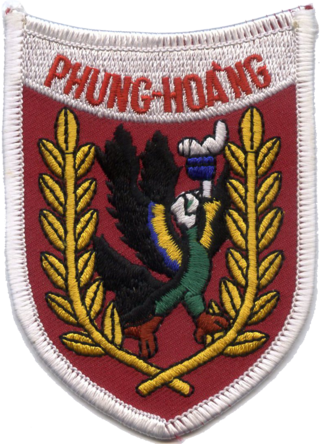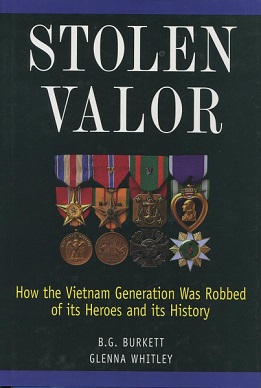The expression military–industrial complex (MIC) describes the relationship between a country's military and the defense industry that supplies it, seen together as a vested interest which influences public policy. A driving factor behind the relationship between the military and the defense-minded corporations is that both sides benefit—one side from obtaining weapons, and the other from being paid to supply them. The term is most often used in reference to the system behind the armed forces of the United States, where the relationship is most prevalent due to close links among defense contractors, the Pentagon, and politicians. The expression gained popularity after a warning of the relationship's detrimental effects, in the farewell address of U.S. President Dwight D. Eisenhower on January 17, 1961.
Cornelius Mahoney Sheehan was an American journalist. As a reporter for The New York Times in 1971, Sheehan obtained the classified Pentagon Papers from Daniel Ellsberg. His series of articles revealed a secret United States Department of Defense history of the Vietnam War and led to a U.S. Supreme Court case, New York Times Co. v. United States, 403 U.S. 713 (1971), which invalidated the United States government's use of a restraining order to halt publication.

The Phoenix Program was designed and initially coordinated by the United States Central Intelligence Agency (CIA) during the Vietnam War, involving the American, South Vietnamese militaries, and a small amount of Special forces operatives from the Australian Army Training Team Vietnam. In 1970, CIA responsibility was phased out, and the program was put under the authority of the Civil Operations and Revolutionary Development Support (CORDS).

Estimates of casualties of the Vietnam War vary widely. Estimates can include both civilian and military deaths in North and South Vietnam, Laos, and Cambodia.

Stolen Valor: How the Vietnam Generation Was Robbed of Its Heroes and Its History (1998) is a self-published book by B.G. Burkett, a Vietnam veteran, and Glenna Whitley, an investigative journalist. It reveals that numerous people claiming to have been mentally injured by serving in the Vietnam War never served there. In addition, it reveals persons who were mistakenly given military awards. It won the Colby Award for military writers in 2000.
The "Winter Soldier Investigation" was a media event sponsored by the Vietnam Veterans Against the War (VVAW) from January 31, 1971, to February 2, 1971. It was intended to publicize war crimes and atrocities by the United States Armed Forces and their allies in the Vietnam War. The VVAW challenged the morality and conduct of the war by showing the direct relationship between military policies and war crimes in Vietnam. The three-day gathering of 109 veterans and 16 civilians took place in Detroit, Michigan. Discharged servicemen from each branch of the armed forces, as well as civilian contractors, medical personnel and academics, all gave testimony about war crimes they had committed or witnessed during the years 1963–1970.

"No Shelter" is a song by American rock band Rage Against the Machine, released in 1998 on the Godzilla soundtrack. It can also be found as a bonus track on the Australian and Japanese release of The Battle of Los Angeles in 1999. The song is about how the mass media distracts the public from more important issues in the world and manipulates people's minds.
The National Committee for a Citizens Commission of Inquiry on U.S. war crimes in Vietnam was founded in New York by Ralph Schoenman in November 1969 to document American atrocities throughout Indochina. The formation of the organization was prompted by the disclosure of the My Lai Massacre on November 12, 1969, by Seymour Hersh, writing for the New York Times. The group was the first to bring to public attention the testimony of American Vietnam War veterans who had witnessed or participated in atrocities.
Thomas M. Engelhardt is an American writer and editor. He is the creator of Type Media Center's tomdispatch.com, an online blog. He is also the co-founder of the American Empire Project and the author of the 1998 book, The End of Victory Culture: Cold War America and the Disillusioning of a Generation.
The Complex may refer to:
The Vietnam War Crimes Working Group (VWCWG) was a Pentagon task force set up in the wake of the My Lai massacre and its media disclosure. The goal of the VWCWG was to attempt to ascertain the veracity of emerging claims of war crimes and atrocities by U.S. armed forces in Vietnam allegedly committed during the Vietnam War period.
The American Empire Project is a book series that deals with imperialist and exceptionalist tendencies in US foreign policy in the early 21st century. The series is published by Metropolitan Books and includes contributions by such notable American thinkers and authors as Noam Chomsky, Howard Zinn, Chalmers Johnson and Andrew Bacevich. The project's goal is to critique what the authors consider the imperial ambitions of the United States and to explore viable alternatives for foreign policy.

Alexander Demitri "Alex" Shimkin was an American war correspondent who was killed in the Vietnam War. He is notable for his investigation of non-combatant casualties in Operation Speedy Express.
Nick Turse is an American investigative journalist, historian, and author. He is the associate editor and research director of the blog TomDispatch and a fellow at The Nation Institute.
Normand Poirier was an American journalist, essayist, and newspaper editor. His name is often spelled Norman Poirier.

Julian Johnson Ewell was a career United States Army officer who served in World War II, the Korean War and the Vietnam War. He commanded the 9th Infantry Division and II Field Force in Vietnam, and attained the rank of lieutenant general.
Type Media Center is a nonprofit media organization that was previously associated with The Nation magazine. It sponsors fellows, hosts forums, publishes books and investigative reporting, and awards several annual journalism prizes. Orville Schell worked for the organization, and Katrina vanden Heuvel is currently a member of their board of trustees.
Deborah Nelson is a Pulitzer prize-winning freelance journalist at Reuters and the Associate Professor of Investigative Reporting at the Philip Merrill College of Journalism at the University of Maryland.

Terry Marvell Whitmore was an American soldier, deserter and actor.

Rape, among other acts of wartime sexual violence, was frequently committed against female Vietnamese civilians during the Vietnam War. It was an aspect of the various human rights abuses perpetrated by the United States and South Korea, as well as by local Vietnamese combatants. According to American political scientist Elisabeth Jean Wood, the sexual violation of women by American military personnel was tolerated by their commanders. American professor Gina Marie Weaver stated that not only were documented crimes against Vietnamese women by American soldiers ignored during the international legal discourse that occurred immediately after the conflict, but modern feminists and other anti-war rape campaigners, as well as historians, have continued to dismiss them.








